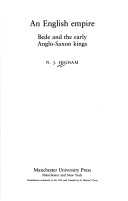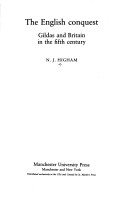Origins of England S.
2 total works
This second book in the "Origins of England" trilogy examines the organization and make-up of Anglo-Saxon England in the early 7th century, taking as its starting point the highly rhetorical account of Britain's ecclesiastical history written by Bede. Bede made efforts to legitimise the English domination of his own day by comparing it to the Roman rule of Britain in the past. N.J. Higham re-examines and reinterprets the principal literary sources for an English "empire": Bede's famous list of "overkings" in Historical Ecclesiastica, and the Tribal Hidage. He argues that a comparatively stable and long-lived pattern of regional "overkingships" existed in early England. King Raedwald's career as a king and "overking" is described in detail. The book closes with an account of relations between the Anglo-Saxons and Britons in early England which provides insights into the structure of rural society in the age of Bede.
This is a re-interpretation of the events from 400 to 500 AD when the Saxons took over a large part of Britain, and came to dominate both the language and material culture of its lowland heartland. The writings of Gildas, who wrote the near contemporary and extended description of the "English Settlement", are central to the story. Higham offers his own insights into Gildas' purposes and the social, political and chronological context in which he worked. He shows how Gildas wrote around the years 479 to 485 in the context of Saxon domination south of the Mersey, and how he wrote in order to find a way to reverse the conquest, using metaphor and imagery as his literary weapon. This first volume of a three-part analysis of the origins of England shows how history can still contribute to our understanding of the "dark ages", and challenges the interpretations now being offered by many archaeolologists researching pagan England.

